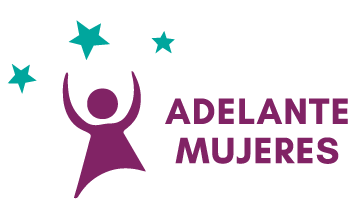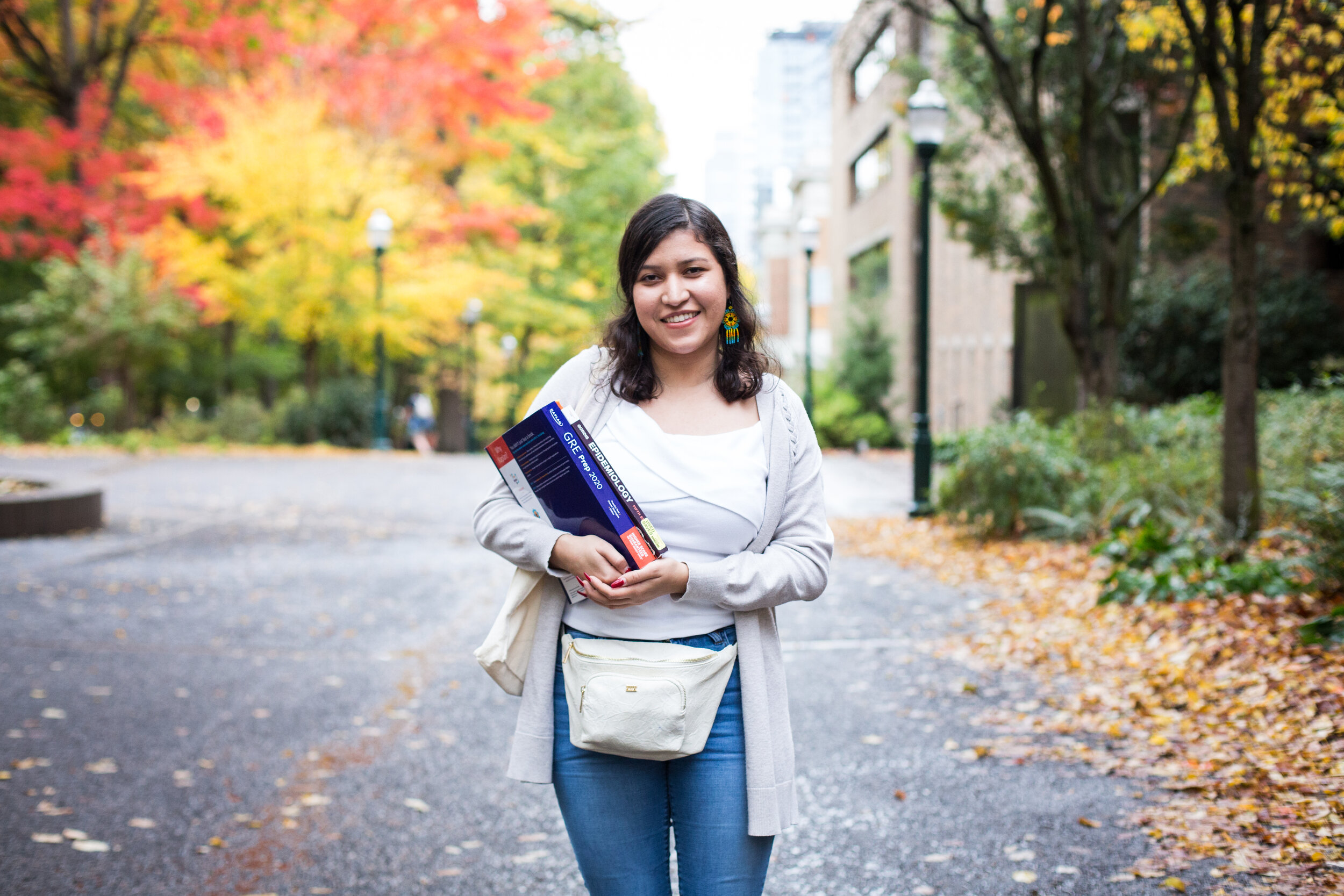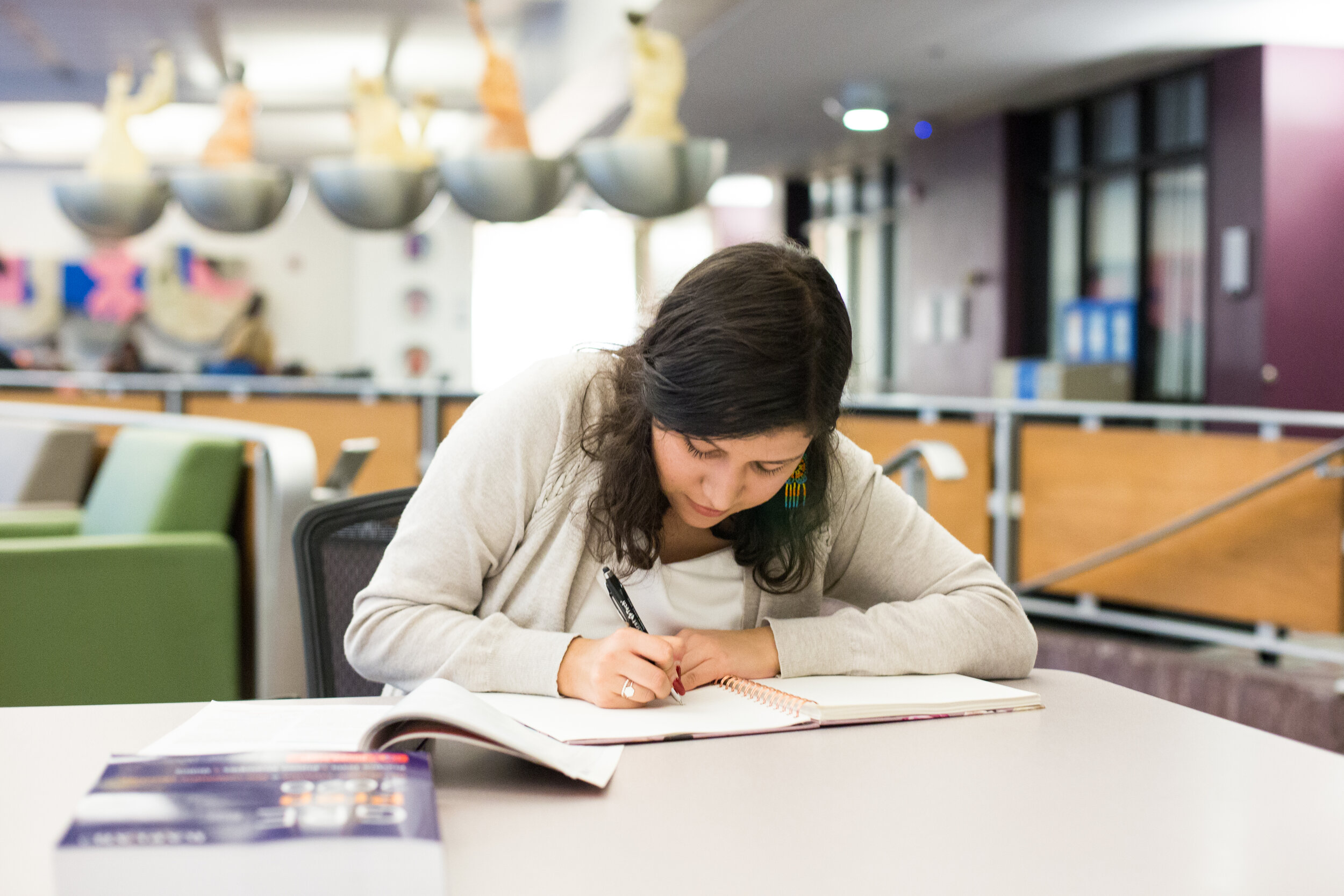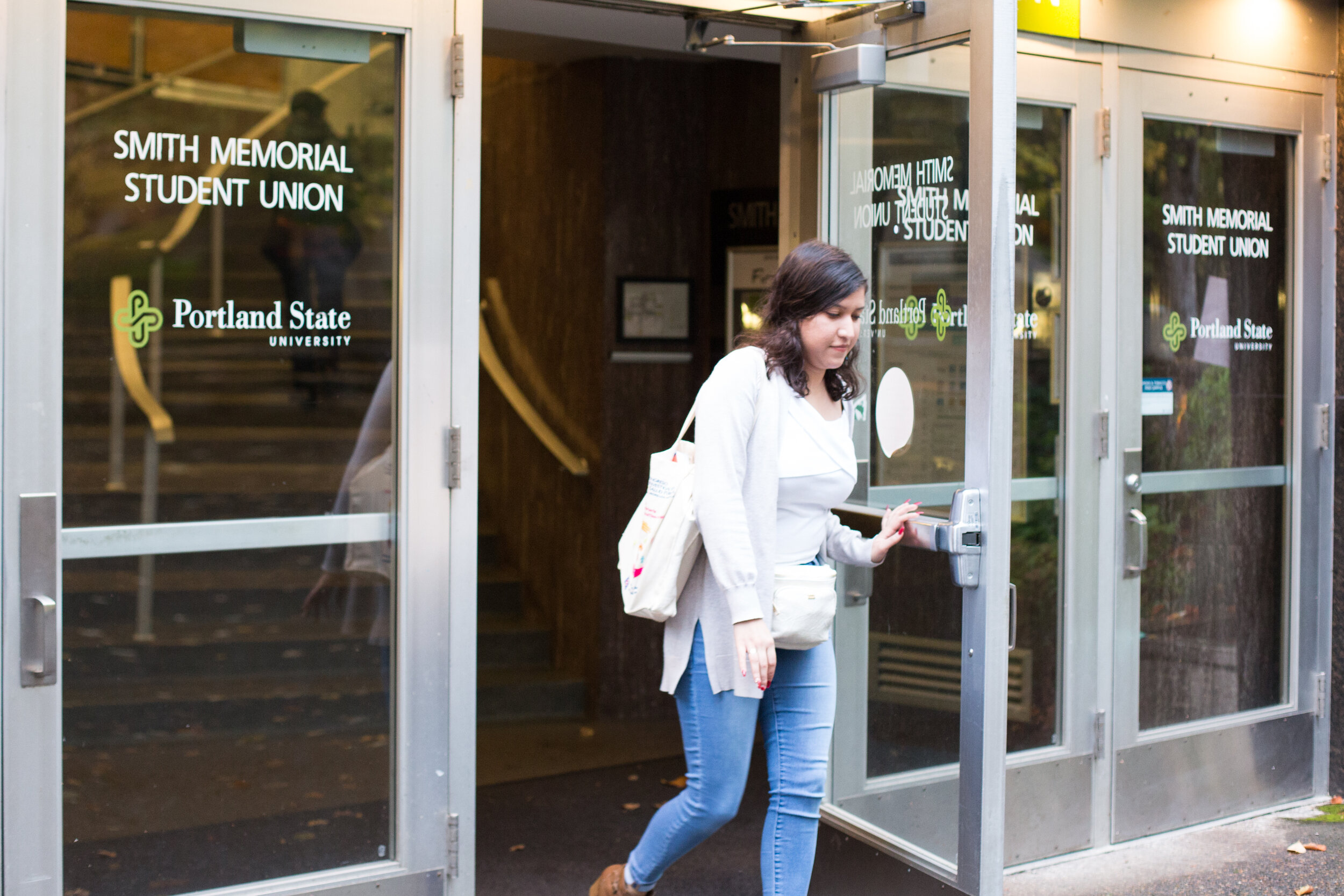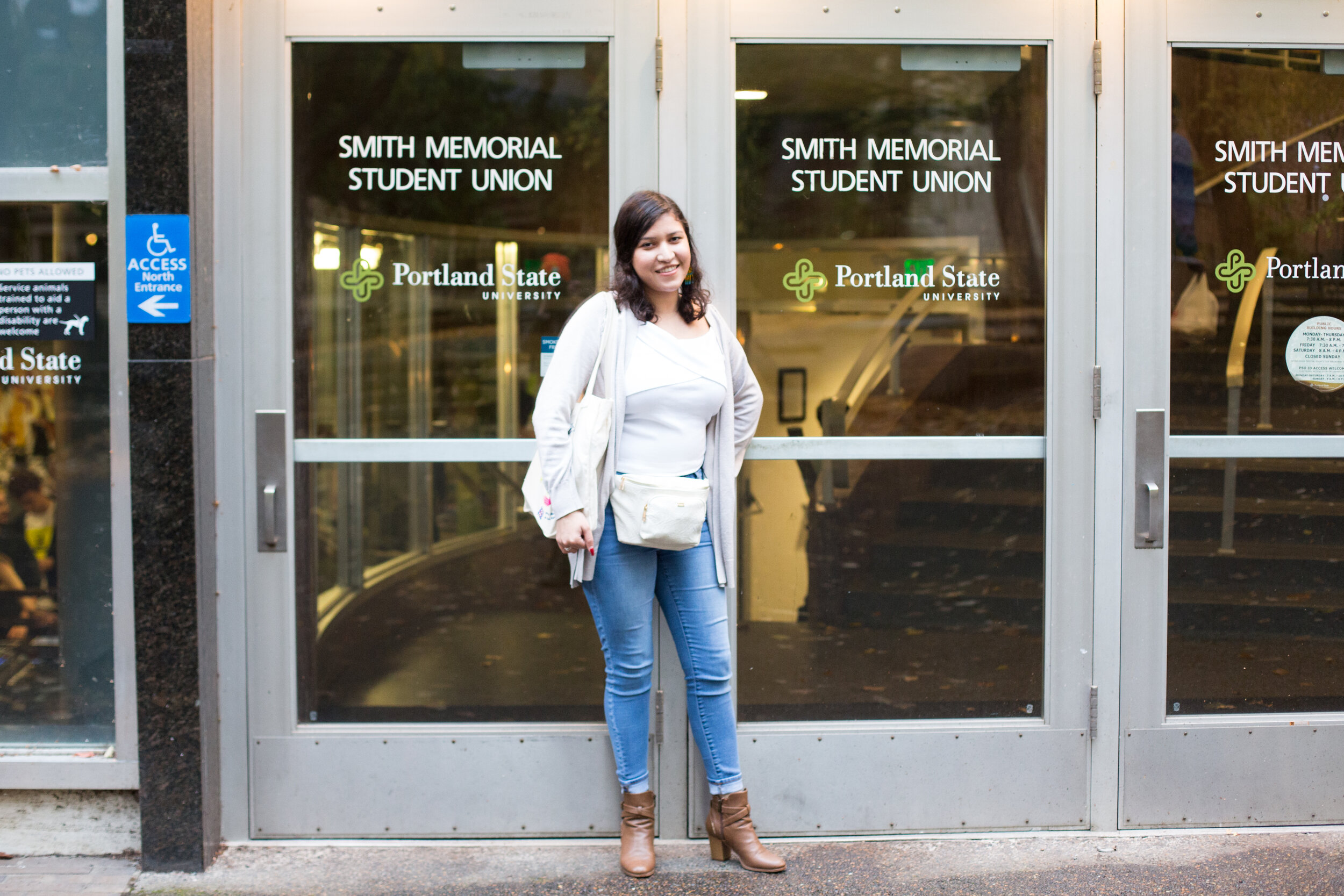Yareli’s Story
It’s a crisp fall day in Oregon. A light drizzle comes and goes from an overcast sky and leaves the color of fire begin to slowly trickle to the ground.
The campus at Portland State University is buzzing as students flow from one building to the next with backpacks in tow.
Yareli, a student at PSU, settles into a table in a quiet study area and begins to tell her story.
Yareli’s parents immigrated to the U.S. from Mexico a few decades ago. Growing up Latina,Yareli remembers the many struggles she faced in school, including the colossal task of being the first person in her family to go to college.
“I used to be very, very shy. And it was always really hard for me to stand up for what I believed in,” says Yareli.
She remembers her peers in high school talking about Latinas, saying things like ‘You’re just going to end up getting pregnant or dropping out of high school, proving that you are just another statistic’.
Most of her school’s faculty was white. “So, I think in terms of relating to students it was very hard,” says Yarlei. She never saw representation of People of Color in the literature that they studied.
“We were never taught about Latina leaders. It’s always about the representation of a white cis male — that’s what a leader looks like. And I was like, ‘I don’t fit there, therefore I’m not a leader.’”
While the majority of her student body identified at Latinx, there was a lack of programs that supported them. Yareli remembers thinking, ‘How can I find support within my own identity as a woman and as a Latina?’.
Yareli always had her parents in the back of her mind. She knew they had sacrificed a lot for her education, so she knew she had to work hard to get where she wanted to go.
Yareli had been hearing good things about our Chicas Youth Development Program , so when Chicas expanded to her school when she was a sophomore, Yareli enrolled.
She started attending the culturally-specific, bilingual after-school sessions and soon found herself never missing a session. “I very much wanted to be a part of that program.”
“When I looked around the classroom [during Chicas] and saw individuals that shared stories that I could relate to, I was like…I just don’t have words for it. It was a shock to see, and it was just amazing. Even my peers that I’ve always been with that also identify as Latina, I didn’t know they were going through the same thing because we didn’t talk about that, and we didn’t have a safe space to share our ideas.”
Yareli says she began to open up. “[My Chicas Facilitators] pushed me in a way that allowed me to grow,” says Yareli. She started gaining the confidence to speak up in school.
Through leadership training and learning about Latina leaders in Chicas, Yareli said she started to realized something big: “…something switched in my mind. Leaders aren’t just cis white men. They can be brown people, black people, Asian folks. And that’s when I started to think, ‘Yeah, I am a leader’.”
Yareli’s Chicas Facilitators introduced her to Public Health as a possible field to study in college, they supported her with navigating the financial aid system, and they helped her setup an Individual Development Account to help her pay for college.
Today, Yareli is a senior at Portland State University. She is studying Public Health and minoring in Women’s Studies.
She is also currently working at OHSU in the Family Planning Sector. She is the first mentee of Dr. Blair Darney, who conducts women’s reproductive health research in Mexico and the U.S. “It’s very much something that I never thought I was going to be able to do.”
“There are [Latina] leaders out there, and there are definitely young leaders out there who are Latinas. But we never get the spotlight.”
Yareli’s hope for all Latinas? That they’ll be able to have the autonomy to be able to do what they want with their careers and with their lives, and to be paid fairly.
She also hopes that our Chicas Program continues to expand into more school districts, and to hopefully one day expand to support Latinas in college.
“[Chicas] is something that I still yearn for even in my college experience.”
Yareli plans to pursue a career in community health education and to continue to fight for women’s reproductive rights and immigrant health rights.
Next spring, she will be the first person in her family to become a college graduate.
You can support our Chicas Youth Development Program to help more young women like Yareli become empowered to lead.
